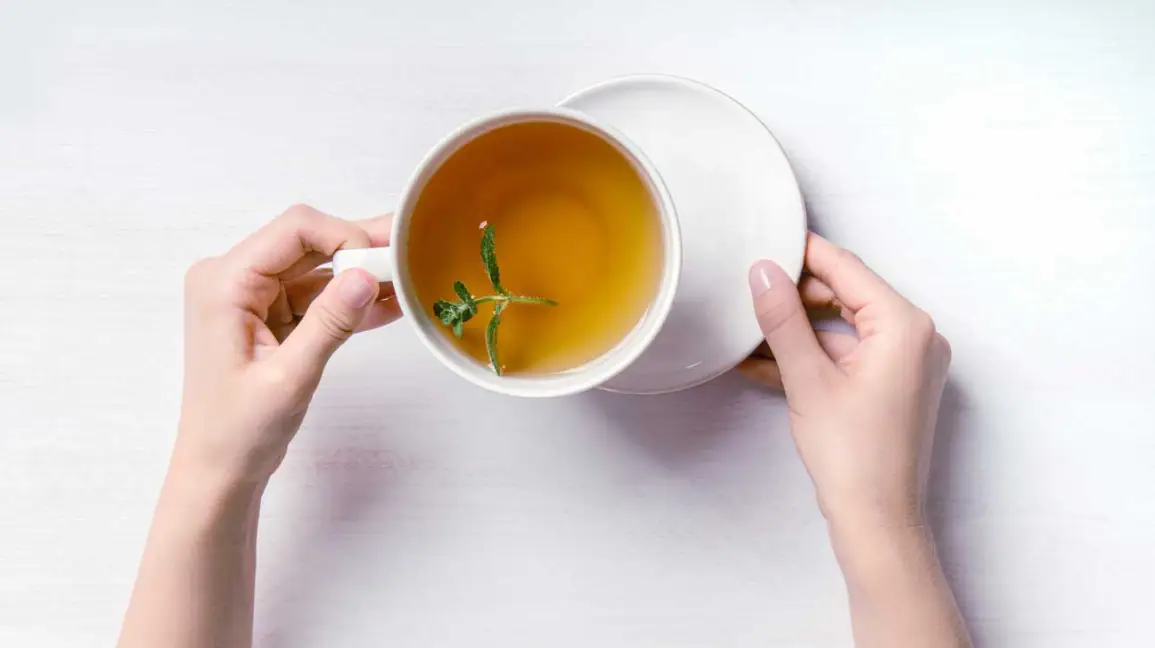Tea to drink when sick? Tea has been a beloved beverage for centuries, not only for its comforting taste but also for its numerous health benefits. From ancient civilizations to modern times, tea has been used as a natural remedy for various ailments. Whether it’s a soothing cup of chamomile before bed or a steaming mug of green tea in the morning, each type of tea offers unique health benefits that can promote overall wellness and boost your immune system.
As an avid tea drinker myself, I have experienced firsthand the healing power of this magical beverage. Whenever I feel under the weather or simply need a pick-me-up, turning to my favorite teas always does the trick. In this article, I will delve into the different types of teas and their specific health benefits, sharing personal anecdotes along the way.
Key Takeaways
- Tea has healing powers and can be beneficial when you’re sick.
- Herbal teas can soothe a sore throat and help relieve sinus congestion.
- Drinking tea can boost your immune system and reduce inflammation.
- Certain teas can also help calm an upset stomach and aid in sleep when you’re sick.
- To maximize health benefits, it’s important to brew tea properly.

The Benefits of Drinking Tea When You’re Sick
When you’re feeling sick and miserable, reaching for a cup of tea can provide much-needed relief. Unlike over-the-counter medications that often come with unwanted side effects, drinking tea is a natural and safe alternative that can help soothe symptoms and promote healing.
One winter when I caught a nasty cold that left me bedridden for days, my go-to remedy was sipping on hot herbal teas throughout the day. Not only did it keep me hydrated when my appetite was nonexistent but it also helped alleviate my sore throat and reduce congestion.
Herbal Teas for Soothing a Sore Throat
A sore throat can be incredibly uncomfortable and make even simple tasks like swallowing painful. Thankfully, there are several herbal teas known for their soothing properties when it comes to relieving sore throats.
Chamomile tea is one such herbal remedy that has been used for centuries due to its anti-inflammatory properties. Whenever I have had a scratchy throat or felt inflammation coming on during allergy season, sipping on chamomile tea has provided much-needed relief.
Another herbal tea that works wonders for a sore throat is licorice root tea. Not only does it have natural anti-inflammatory properties, but it also acts as a pain reliever. I remember one winter when I had a persistent sore throat that just wouldn’t go away. After trying various over-the-counter medications with no success, I turned to licorice root tea and was amazed at how quickly it helped alleviate the pain.
The Best Teas for Fighting a Cold or Flu
| Tea Type | Benefits | Preparation |
|---|---|---|
| Echinacea Tea | Boosts immune system, reduces inflammation, relieves congestion | Steep 1-2 teaspoons of dried echinacea in boiling water for 5-10 minutes |
| Ginger Tea | Relieves nausea, reduces inflammation, boosts immune system | Steep 1-2 teaspoons of grated ginger in boiling water for 5-10 minutes |
| Peppermint Tea | Relieves congestion, reduces inflammation, soothes sore throat | Steep 1-2 teaspoons of dried peppermint leaves in boiling water for 5-10 minutes |
| Lemon Tea | Boosts immune system, relieves congestion, soothes sore throat | Steep 1-2 teaspoons of fresh lemon juice and honey in boiling water for 5-10 minutes |
| Chamomile Tea | Relieves congestion, reduces inflammation, soothes sore throat | Steep 1-2 teaspoons of dried chamomile flowers in boiling water for 5-10 minutes |
When you’re battling a cold or flu, boosting your immune system becomes crucial in order to fight off the infection effectively. Certain teas are known for their immune-boosting properties and can help shorten the duration of your illness.
Echinacea tea is often recommended during cold and flu season due to its ability to stimulate the immune system and fight off infections. Whenever I feel like I’m coming down with something, brewing myself a cup of echinacea tea gives me an extra boost of confidence in my body’s ability to ward off illness.
Peppermint tea is another great option when you’re feeling under the weather. Its menthol content helps relieve congestion and soothe a sore throat, providing much-needed comfort during those long nights of coughing and sneezing.
Teas to Help Relieve Sinus Congestion
Sinus congestion can be incredibly frustrating, making it difficult to breathe properly or even think clearly. Luckily, there are teas specifically designed to help relieve sinus congestion and promote respiratory health.
Green tea is known for its anti-inflammatory properties which can help reduce inflammation in the sinuses and relieve sinus pressure. Whenever my sinuses feel congested due to allergies or seasonal changes, sipping on green tea provides relief by reducing inflammation in my nasal passages.
Eucalyptus tea is another powerful remedy for sinus congestion due to its natural decongestant properties. The steam from a cup of eucalyptus tea can help clear your sinuses and promote respiratory health. I remember one particularly bad bout of sinus congestion when I couldn’t breathe through my nose at all. After drinking eucalyptus tea for a few days, my sinuses cleared up, and I could finally breathe freely again.
The Top Teas for Boosting Your Immune System
Boosting your immune system is essential not only during cold and flu season but also year-round to prevent infections and stay healthy. Certain teas are packed with antioxidants and other immune-boosting compounds that can strengthen your body’s defenses.
Matcha tea, made from finely ground green tea leaves, is known for its high concentration of antioxidants called catechins. These powerful compounds help boost the immune system by neutralizing harmful free radicals in the body. Whenever I feel like my immune system needs an extra kick, starting my day with a cup of matcha tea gives me the confidence to take on whatever comes my way.
Turmeric tea is another potent immune-boosting beverage due to its anti-inflammatory properties. Curcumin, the active compound in turmeric, has been shown to enhance immune function and reduce inflammation in the body. Whenever I feel run down or notice signs of inflammation in my body, incorporating turmeric tea into my daily routine helps keep me feeling strong and healthy.
Teas for Calming an Upset Stomach
An upset stomach can put a damper on even the best of days, making it difficult to focus or enjoy anything fully. Thankfully, there are several teas known for their ability to soothe digestive issues and calm an upset stomach.
Peppermint tea has long been used as a natural remedy for digestive problems such as indigestion or nausea. Its menthol content helps relax muscles in the gastrointestinal tract, relieving symptoms like bloating or cramping. Whenever I’ve had an upset stomach, sipping on a warm cup of peppermint tea has provided quick relief and helped settle my digestive system.
Ginger tea is another powerful remedy for digestive issues due to its anti-inflammatory properties. It can help reduce inflammation in the gut and relieve symptoms like nausea or indigestion. I remember one particularly memorable vacation when I ate something that didn’t agree with me, leaving me with a queasy stomach for days. Ginger tea became my constant companion during that time, soothing my upset stomach and allowing me to enjoy the rest of my trip.
The Best Teas for Reducing Inflammation
Inflammation is at the root of many chronic diseases and can cause discomfort or pain in various parts of the body. Incorporating teas known for their anti-inflammatory properties into your daily routine can help reduce inflammation and promote overall health.
Turmeric tea, once again, takes center stage when it comes to reducing inflammation naturally. Its active compound curcumin has been extensively studied for its ability to inhibit inflammatory pathways in the body. Whenever I feel joint pain or notice signs of inflammation in my body, turmeric tea becomes a staple in my daily routine.
Green tea is another powerful ally when it comes to reducing inflammation due to its high concentration of antioxidants called catechins. These compounds have been shown to have anti-inflammatory effects on the body by neutralizing free radicals that contribute to oxidative stress and inflammation.
Teas to Help You Sleep When You’re Sick
When you’re sick, getting enough restful sleep becomes crucial for your recovery process. However, coughing fits or congestion can make it difficult to fall asleep or stay asleep throughout the night. Thankfully, there are teas known for their calming properties that can help promote relaxation and improve sleep quality.
Chamomile tea is often hailed as a natural sleep aid due to its mild sedative effects on the body. Whenever I’m feeling under the weather and struggling to get a good night’s sleep, sipping on a cup of chamomile tea before bed helps me relax and drift off into a peaceful slumber.
Valerian root tea is another herbal remedy that can help promote relaxation and reduce anxiety, making it easier to fall asleep. While its earthy taste might not be everyone’s cup of tea (pun intended), I have found valerian root tea to be incredibly effective in calming my mind and preparing me for a restful night’s sleep.
How to Brew the Perfect Cup of Tea for Maximum Health Benefits
To fully reap the health benefits of tea, it’s important to brew it properly. Here are some tips for brewing the perfect cup of tea:
1. Use high-quality tea leaves or tea bags: The quality of your ingredients will greatly impact the taste and health benefits of your brewed tea. Opt for organic teas whenever possible, as they are free from harmful pesticides or chemicals.
2. Use filtered water and bring it to the appropriate temperature: The quality of water used can affect both taste and health benefits. Filtered water is preferable as it removes impurities that may alter the flavor or composition of your brewed tea. Different types of teas require different water temperatures for optimal brewing, so be sure to follow instructions specific to each type.
3. Steep the tea for the recommended amount of time: Oversteeping or understeeping can result in either weak or bitter-tasting brews with diminished health benefits. Follow instructions on packaging regarding steeping times, but feel free to adjust according to personal preference.
The Importance Of Incorporating Tea Into Your Wellness Routine
Incorporating tea into your daily wellness routine can have profound effects on your overall health and well-being. From soothing sore throats and relieving sinus congestion to boosting immune function and reducing inflammation, there is a tea for every ailment or health goal.
As a professional author who has extensively researched and experienced the healing power of tea, I can confidently say that it is a natural and safe alternative to over-the-counter medications. So the next time you’re feeling under the weather or simply want to give your body an extra boost, reach for a cup of tea and let its magic work wonders. Cheers to good health!
FAQs
What are the benefits of drinking tea when you’re sick?
Tea can help soothe a sore throat, reduce inflammation, boost the immune system, and provide hydration.
What types of tea are best for when you’re sick?
Herbal teas such as ginger, chamomile, peppermint, and echinacea are great options for when you’re sick. Green tea and black tea can also provide benefits.
How does ginger tea help when you’re sick?
Ginger tea can help reduce inflammation, relieve nausea, and boost the immune system. It also has antibacterial and antiviral properties.
What are the benefits of drinking chamomile tea when you’re sick?
Chamomile tea can help soothe a sore throat, reduce inflammation, and promote relaxation and sleep. It also has antibacterial and antiviral properties.
How does peppermint tea help when you’re sick?
Peppermint tea can help relieve congestion, reduce inflammation, and soothe a sore throat. It also has antibacterial and antiviral properties.
What is echinacea tea and how does it help when you’re sick?
Echinacea tea is made from the echinacea plant and can help boost the immune system, reduce inflammation, and relieve cold and flu symptoms. It also has antiviral and antibacterial properties.
Can green tea and black tea help when you’re sick?
Yes, both green tea and black tea contain antioxidants and can help boost the immune system. Green tea also has antibacterial and antiviral properties, while black tea can help relieve congestion and soothe a sore throat.
Originally posted 2024-01-03 16:40:43.



